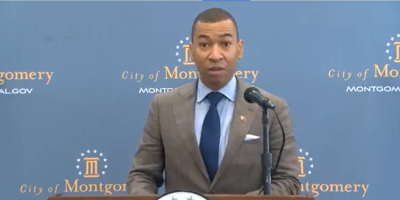
Montgomery Mayor Stephen L. Reid spoke this week during the city’s monthly press conference, addressing the rising controversy surrounding the Montgomery Museum of Art (MMFA). He aimed to clarify the city’s involvement in the museum’s governance and counter what he described as misinformation.
His comments come as the Montgomery City Council is set to restructure the museum’s board and vote on an ordinance that will update its governance structure. This follows several months of tension between the city and the museum’s nonprofit organization.
Reid firmly rejected the idea that the city planned to close the museum or take control of it. “For one thing, the museum is not closed. It’s here to stay, and the city is not looking to take over the Montgomery Museum,” he stated. He emphasized the museum’s importance to Montgomery’s cultural landscape and the need to preserve and enhance it for future generations.
The city’s decision to review the museum’s operations was prompted by a lawsuit filed earlier this year, with the city named as a defendant. Reid noted that the lawsuit revealed gaps in legal compliance concerning how museums have been historically managed.
“For many years, it has been managed by private associations, which isn’t compliant with Alabama law, posing legal risks and operational challenges. This includes issues concerning employee contracts signed without proper city approval,” Reid explained.
The core of the matter lies in how the museum is managed by both the city-appointed board and nonprofit organizations. While the nonprofit traditionally manages funding and exhibition development, the city argues that public ownership and taxpayer funding call for full compliance with state laws, particularly a provision in the Alabama Constitution that governs the transfer of public assets.
“We’re not trying to take control of the museum. The city is establishing a governance structure that adheres to legal standards,” he said. “It’s more about stewardship than control.”
In February, city officials reinforced that the legal governance of the museum rests with city-appointed boards, a position supported by Alabama’s Attorney General. This viewpoint has drawn criticism from some members of the museum’s joint committee, which includes representatives from both the museum and the association, who argue that the museum has operated under a public-private cooperative model.
Reid mentioned that the city sees this as an opportunity to revise the outdated agreements and create a more transparent structure for the museum’s future. He pointed to best practices utilized by other public agencies, such as the Birmingham Museum of Art, for guidance.
“Sometimes, it takes a lesser situation to illuminate the need for change… We owe this to taxpayers, city staff, and the museums,” he noted.
He also addressed community fears that the city’s involvement might jeopardize the museum’s art collections and programs. “The museum will not close its doors,” he assured. “We are committed to ensuring that the museum continues to thrive as a space for arts and community engagement. Will art collections be lost or removed? No, absolutely not. I can’t believe everything I read online.”
According to Reid, under the proposed changes, the nonprofit will still play a role in fundraising and programming. The ordinance aims to clarify responsibilities and ensure compliance with public governance standards without diminishing the nonprofit’s contributions. “I don’t see the association losing power. We are collaborating and gaining talent. For me, it’s not about power struggles,” he said.
The Montgomery City Council is expected to review the ordinance and related governance agreements at its upcoming meeting on June 3rd, with work sessions beginning at 4 PM and regular meetings following at 5 PM.







